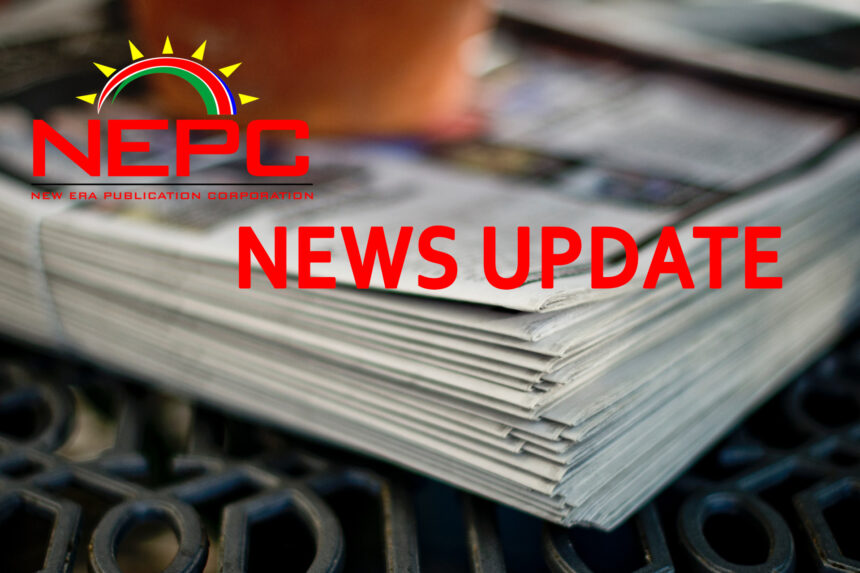Namibia needs to conduct an innovation audit to assess its innovation readiness.
This is according to Vice Chancellor of the Namibia University of Science and Technology (NUST) Dr Erold Naomab, who said the audit entails identifying the innovation to be measured as well as its scope, objectives, stakeholders, planning and how its metrics are recorded, organised and examined.
“Innovation is needed now more than ever. Innovation is not a singular process, nor is it a stand-alone pillar. It requires connection across an array of indicators and business verticals and academia to map the steps that innovators must navigate,” said Naomab at the opening of the Innovation Investment Readiness (IIR) Week being conducted this week at NUST’s new High-Tech Transfer Plaza Select (HTTPS).
The week-long event is organised by the Namibia Investment Promotion and Development Board (NIPDB), together with NUST and Mobile Telecommunications Limited (MTC).
Naomab added that some innovation indicators that must be visible through the proposed audit are the ability to tap into collective intelligence; evaluate performance and measure best fit by sector and industry, track progress and share and update data for the benefit of all.
The conference aims to kick off and execute value-creating prototyping projects as a concrete outcome leading to stronger competitiveness and investment attractiveness in focus areas.
The identified industries and focus areas include food and agro-processing, chemicals & basic materials (manufacturing), metals, mining and adjacent industries (mining and value addition), machinery & electronics (manufacturing), transport & logistics, renewables and green hydrogen, tourism, tech (fintech and others) as well as digital and global business services.
The prototype week commenced on 11 and will end on 15 July 2022.
“The sole aim is to strategically and collectively deliberate on mechanisms to enhance Namibia’s position as an attractive investment destination,” said Naomab.
The NUST VC continued that the university’s research domains and programmes are aligned explicitly with some of the areas being discussed this week.
“For example, our Agricultural Trade Policy Institute provides support to sector-based projects to strengthen institutional policies, while at the same time providing evidence-based research results to inform decision-making in the agricultural food sector. And our Centre for Excellence in Mineral Beneficiation promotes ground-breaking research and innovation in mining, mineral beneficiation – and further value addition in Namibia, as well as environmental and socio-economic issues, linked to the mineral sector. We value our industrial relations and acknowledge that we cannot operate in silos if we are to make an impact in our communities,” Naomab elaborated.
He added that “innovation readiness” means being fully prepared to conceive new ideas through a conducive innovative ecosystem as a precursor.
“Innovation is a process, the ability to think differently, ideate, challenge the status quo – and most importantly, execute and deliver. Innovation is what sets the business apart, underpinning its competitive advantage,” Naomab said at the opening of the event.
Last month, NUST and various stakeholders took part in the Fourth Industrial Revolution (4IR) Conference and Expo, which was a platform to, amongst others, bring together key players in the private and public sectors to discuss challenges, gaps and opportunities for Namibia’s 4IR readiness.
Said Naomab: “The event was a resounding success and served as a springboard to heighten our capabilities in emerging technologies. During the discussions that week, it was of particular interest to acknowledge that Namibia has come to a point where we no longer accept imported innovation. Instead, research and development should be geared toward creating our innovation path to empower and impact society”.
However, he noted, this can only happen when there are conscious efforts towards building capacity in core 4IR skills, such as data science, artificial intelligence, cyber security and robotics”.
“In particular, one of the crucial recommendations is for Namibia to provide dedicated funding for investing at least 1% of its GDP in research, innovation and development. Amongst other critical recommendations is to invest in physical research infrastructures appropriately. There is a need to include low-income communities and underserved groups in developing novel products and services. New business opportunities arise for entrepreneurs who want to combine profit with a social impact,” Naomab stated.
The NUST VC concluded it is only through constructive, transparent and brutally authentic engagements, backed by action, that meaningful contributions can be made to develop Namibia.



